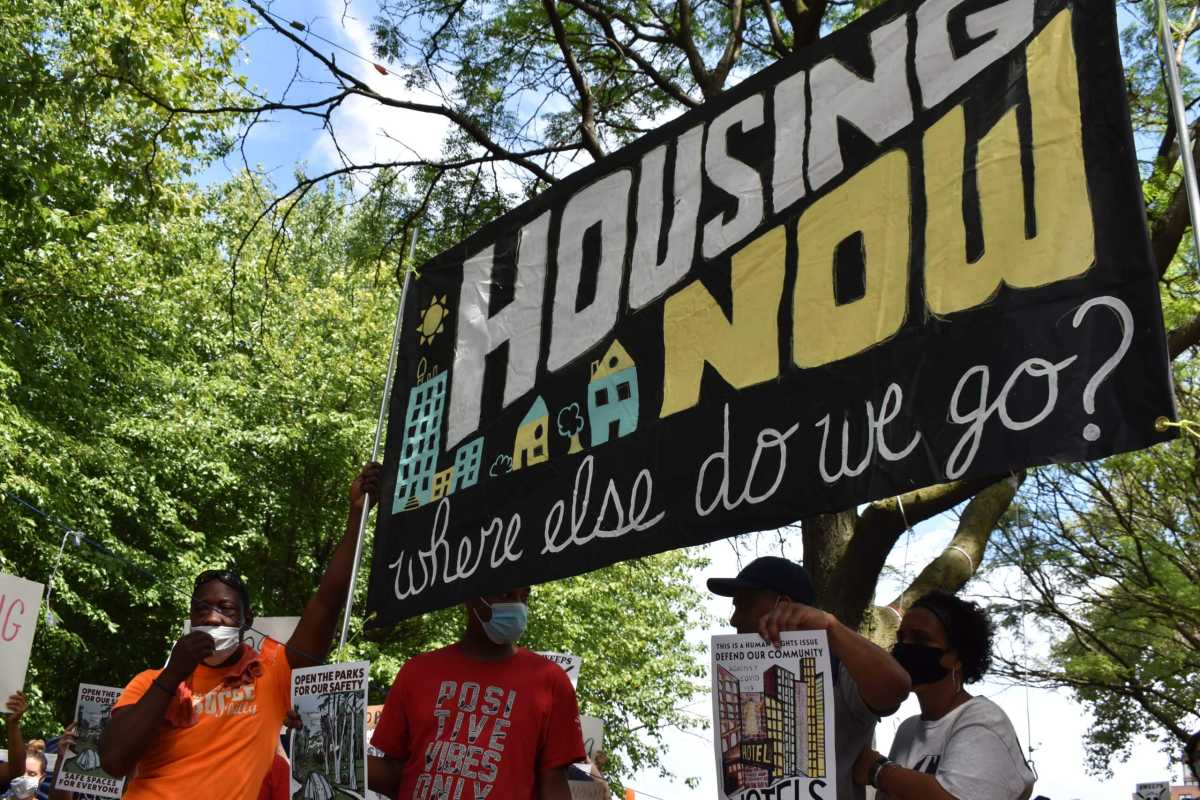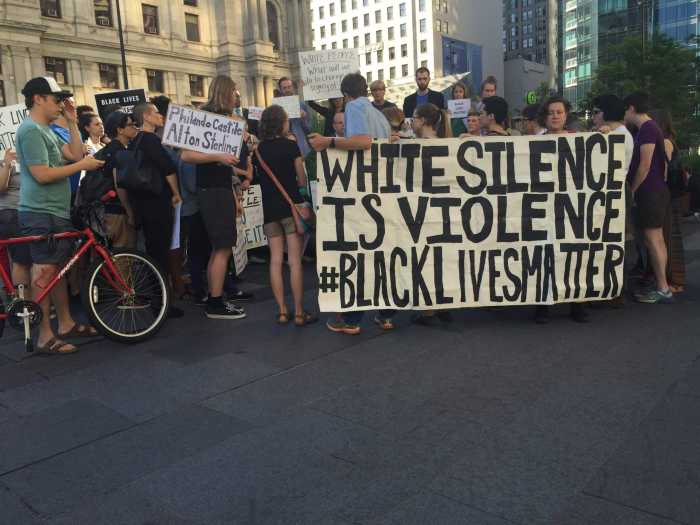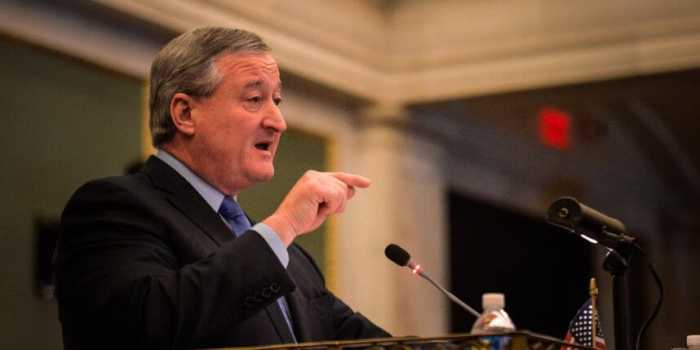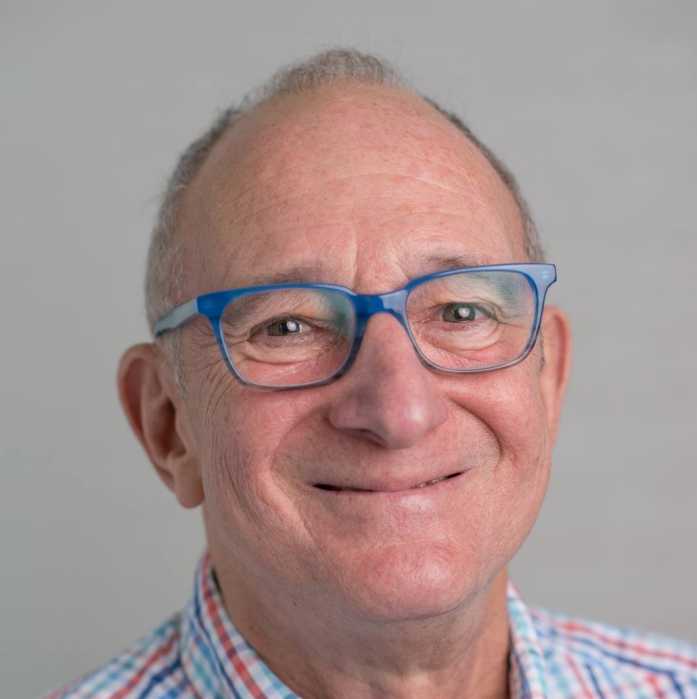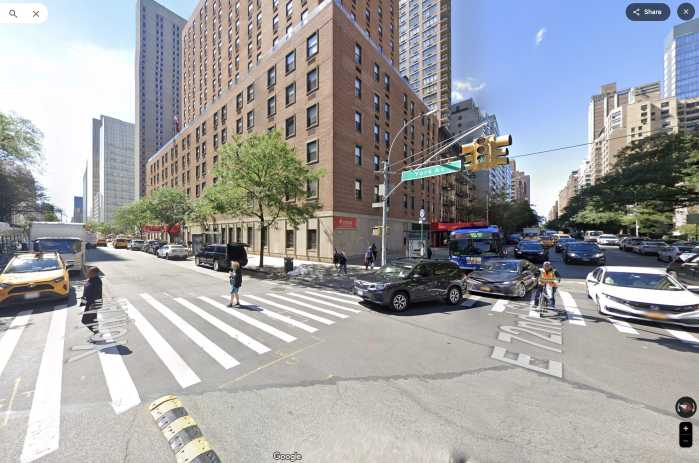A pair of homeless protest camps, including a large array of tents at a ball field on the Benjamin Franklin Parkway, remained Tuesday, after two City Council members stepped in and a lawyer filed an injunction in federal court.
Mayor Jim Kenney’s administration issued a notice Monday to residents of the camps ordering them to uproot by Tuesday at 9 a.m. after negotiations broke down between city leaders and camp organizers.
It’s unclear when or if the city will move in to clear the camps. Supporters showed up to defend both encampments Tuesday morning.
Kenney said Tuesday afternoon that the city was not required to clear the camps just because notice was provided. The mayor indicated the city will allow a federal judge to rule on the motion filed Monday before taking steps to remove the camps.
However, action will be “imminent” if there’s no resolution, the mayor said.
“There’s going to come a time relatively shortly where we’re going to run out of words to talk to each other about,” Kenney said. “We’re not going to meet all of the demands that the encampment leaders want us to meet.”
Michael Huff, an attorney representing camp residents, is asking a federal court to prevent the city from attempting to clear three encampments—the Parkway site, and two smaller camps, one on Ridge Avenue near the Philadelphia Housing Authority’s North Philadelphia headquarters and the other behind the Philadelphia Museum of Art.
Closing the camps would violate the residents’ First Amendment rights, since the encampments were formed in conjunction with Black Lives Matter demonstrations as a protest for affordable housing, he argued.
In addition, it would likely involve destroying the residents’ property, Huff wrote, though officials have the city would store belongings at a warehouse to be claimed for 30 days.
Court documents also argue that homeless people are safer at the camps than in shelters, some of which have struggled to contain COVID-19.
The motion asks a judge to block city action unless residents’ housing needs are provided for and until a full hearing can be conducted.
A city spokesperson said the administration is confident it can demonstrate in court that the camps need to be shut down due to severe health and public safety concerns.
“The conditions within the camp are getting worse and worse,” Kenney said. “They’re getting less healthy. They’re getting more violent. They’re getting more filled with drugs. They’re getting more unhealthy from a human excrement and human bodily function situation.”
Kenney also said the Ridge Avenue encampment is delaying the construction of a grocery store and the Parkway camp has disrupted a popular youth athletic league. Nearby residents have lodged 400 complaints.
After Monday’s notice was issued, Councilwomen Kendra Brooks and Jamie Gauthier, two progressives in their first terms, sent a letter to Kenney urging him to delay the closure of the camps.
“Dispersing these residents with just a day’s notice is not a solution,” they wrote. “It will only make securing housing for those that need it more challenging and damage the relationships that have been built with activists and advocates over the past few months.”
Brooks and Gauthier urged Kenney’s administration to return to the negotiating table.
The city has offered to build a “tiny house village,” create a sanctioned encampment and work with organizers to establish a community land trust, among other efforts, officials have said.
Kenney said that the camps’ leaders have an “all or nothing” approach, but he agreed to give Gauthier and Brooks “one more chance” to reach a resolution. The pair met with organizers Tuesday.
Encampment leaders have pushed the city to provide immediate, permanent housing for everyone living in the camps. They also want PHA to turn over vacant properties to be used as low-income units.
Eva Gladstein, Kenney’s deputy managing director of health and human services, said they have offered pathways to permanent housing but are limited in what they can provide.
Kenney spokesman Mike Dunn said 88 people from the camps have been placed in temporary housing, including four on Monday.
He said the city is focusing on offering services to those living at the camps, including storage for their possessions and transportation to shelters, residential treatment centers, quarantine hotels and other housing options.
“I don’t want a confrontation, (I) was never looking for one,” Kenney said. “Hopefully we can resolve this amicably.”
A hearing in the court case has yet to be scheduled.



